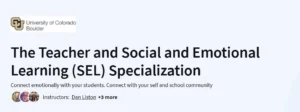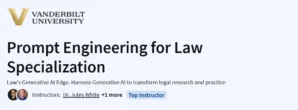An Introduction to American Law
A comprehensive introduction to American law that is perfect for beginners interested in understanding the fundamentals of the U.S. legal system.
What you will learn in An Introduction to American Law Course
- Tort Law: Understand the principles of tort law, focusing on how individuals can seek civil compensation for harm or injury caused by others.
- Contract Law: Learn about the formation and enforcement of contracts, including essential elements like agreement, consideration, and capacity.
- Property Law: Explore the rules and regulations governing the ownership and transfer of property, including real and personal property.
- Constitutional Law: Study the U.S. Constitution, its amendments, and the role it plays in shaping government and protecting individual rights.
- Criminal Law: Understand the foundational concepts of criminal law, including the types of crimes, defenses, and procedures.
- Civil Procedure: Learn about the rules and processes governing civil lawsuits, from the initial filing of a complaint to the final judgment.
Program Overview
Tort Law
⏳ 11 hours
Introduction to tort law, with a focus on negligence, liability, and legal remedies available to injured parties.
Contract Law
⏳ 11 hours
Learn about the essential elements of a contract, including how they are formed, executed, and enforced in the U.S. legal system.
Property Law
⏳ 11 hours
Study the rights associated with property ownership, including real property (land) and personal property (goods and intangible assets).
Constitutional Law
⏳ 11 hours
Explore the U.S. Constitution, the Bill of Rights, and landmark Supreme Court cases that define constitutional law.
Criminal Law
⏳ 11 hours
Understand the types of crimes and defenses, the criminal justice process, and the procedures involved in prosecuting crimes.
Civil Procedure
⏳ 11 hours
Learn about the process for handling civil disputes, including how lawsuits are filed, motions are made, and judgments are enforced.
Get certificate
Job Outlook
- Proficiency in American Law is valuable for roles such as:
Paralegal
Legal Assistant
Compliance Officer
Legal Researcher
- Skills acquired in this course are applicable in various legal sectors, including law firms, corporate legal departments, government agencies, and nonprofit organizations.
- Completing this course provides a foundational understanding of American law, making it suitable for individuals pursuing careers in the legal field or those looking to further their legal education.
- Taught by experienced instructors from the University of Pennsylvania.
- Includes practical examples and real-world applications.
- Accessible for beginners with no prior legal background.
- Requires commitment to complete all modules for certification.
- Some topics may require additional study for a deeper understanding of specific areas.
Specification: An Introduction to American Law
|
FAQs
- The course is designed for beginners with no prior legal education.
- Basic understanding of civic structures and government is helpful but not required.
- Step-by-step explanations simplify legal concepts, terminology, and procedures.
- Practical examples help learners understand laws in everyday contexts.
- Focuses on foundational legal concepts, the structure of the U.S. legal system, and legal reasoning.
- Provides illustrative case examples to show how laws operate in practice.
- Teaches analysis of legal issues without requiring courtroom experience.
- Encourages critical thinking about legal scenarios encountered in daily life.
- Introduces key legal terms with clear, plain-language explanations.
- Emphasizes conceptual understanding over memorization of jargon.
- Includes examples to illustrate how terms are used in context.
- Gradually builds learners’ familiarity with American legal language.
- Covers constitutional rights, civil liberties, and duties under U.S. law.
- Helps learners interpret how laws affect personal, professional, and community life.
- Encourages informed decision-making and civic participation.
- Provides insights into navigating legal obligations and protections.
- Provides a strong introduction for roles in paralegal work, compliance, or policy research.
- Builds critical thinking, analytical, and legal reasoning skills useful in multiple professions.
- Serves as a foundation for further legal studies or certifications.
- Enhances professional credibility in business, government, and social sciences sectors.





